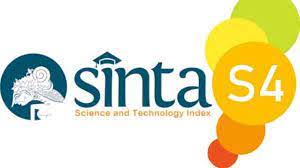Praktik On The Job Training (OJT) II Pelatihan Calon Pengawas Madrasah
Abstract
On The Job Training is one of the best methods for providing high skills or skills to employees because this method is planned, organized and carried out in the workplace and employees are trained on how they carry out their job duties. This article aims to (1) provide an overview of the implementation of each item of activity which is the main task of prospective school/madrasah supervisors along with various supporting and inhibiting factors in the implementation of each item of school/madrasah supervision; and (2) Provide an overview of the condition of the assisted school/madrasah based on the results of an assessment conducted by prospective school/madrasah supervisors. Based on the results and discussion of the practice of On The Job Training (OJT) II, the following conclusions can be drawn: (1) The understanding of prospective Madrasah supervisors on supervision regulations is very important so that prospective supervisors are not mistaken in making policies related to the supervisory program; and (2) To carry out the supervision program, it is necessary to build good synergy between teachers, madrasah heads, supervisors, and related agencies so that the supervision program is maximally successful.
Copyright (c) 2022 Surip Riyadi

This work is licensed under a Creative Commons Attribution-ShareAlike 4.0 International License.
This journal provides immediate open access to its content on the principle that making research freely available to the public supports a greater global exchange of knowledge.

Komunika by http://ejournal.iainu-kebumen.ac.id/index.php/An-Nidzam/ is licensed under a Creative Commons Attribution-ShareAlike 4.0 International License
Authors who publish with this journal agree to the following terms:
- Authors retain copyright and grant the journal right of first publication with the work simultaneously licensed under a Creative Commons Attribution License that allows others to share the work with an acknowledgement of the work's authorship and initial publication in this journal.
- Authors are able to enter into separate, additional contractual arrangements for the non-exclusive distribution of the journal's published version of the work (e.g., post it to an institutional repository or publish it in a book), with an acknowledgement of its initial publication in this journal.
- Authors are permitted and encouraged to post their work online (e.g., in institutional repositories or on their website) prior to and during the submission process, as it can lead to productive exchanges, as well as earlier and greater citation of published work (See The Effect of Open Access).










1.png)


